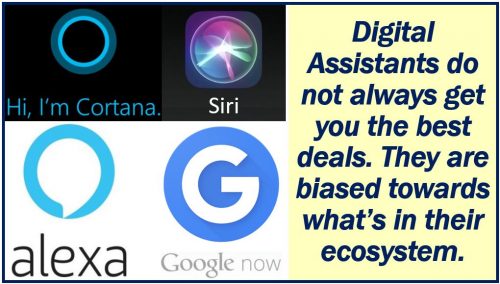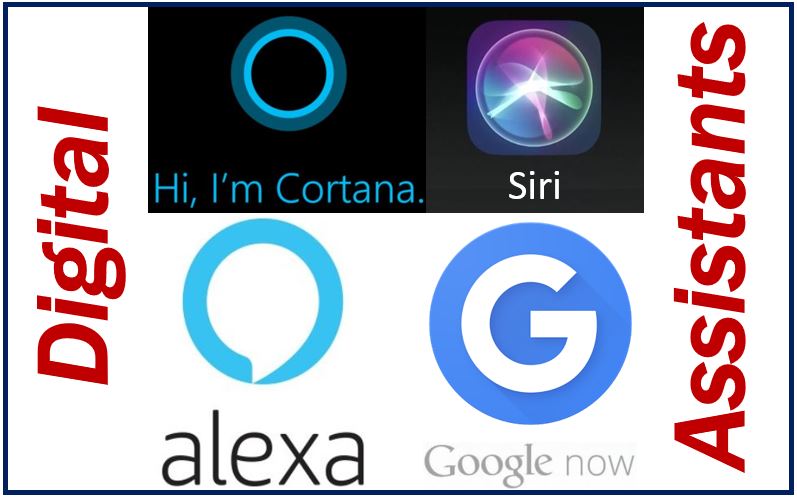When people ask their digital assistants to give them the best price on products, how do they respond? It is not surprising that Alexa, for example, usually directs people to what’s available on Amazon. It might not be, therefore, directing people to the best deals, says Rob Nicholls. Nicholls is a Senior Lecturer in Business Law at the University of New South Wales (UNSW) Business School.
What are digital assistants?
Digital assistants are application programs that understand natural language voice commands. They complete tasks for the people who use them. We also call them AI assistants or virtual assistants. AI stands for artificial intelligence. AI refers to software technologies that make computers, robots, and other devices think like we do. It also makes them behave like we do.
Digital assistants perform the tasks that human personal assistants once did. For example, they take dictation, read emails and texts aloud, schedule appointments, and place phone calls. They also remind their users to do things and call people.
The most popular virtual assistants today are Microsoft’s Cortana, Apple’s Siri, Amazon’s Alexa, and Google Now.
A growing number of people globally are using digital assistants. They listen to every command and know where their users are. They also have an evolving understanding of their users’ preferences.
Here is the catch
However, there’s a catch. They can only provide one answer to each question. That answer, says Dr. Nicholls, will almost certainly try to keep you in the digital assistant’s ecosystem. In other words, Alexa will try to keep you within Amazon’s ecosystem, Siri within Apple’s, etc.
Each of the major platforms has its own ecosystem. We refer to the major platforms as FAANG. FAANG stands for Facebook, Amazon, Apple, Netflix, and Google. When users stay within an ecosystem, advertising revenue is maximized. Therefore, digital assistants’ help is most likely to be limited.

Shopping online using digital assistants
Over one-fifth of all digital assistant owners say they shop online using voice commands. Shopping online means shopping via the Internet.
What happens, therefore, when you request a price for a product?
Dr. Nicholls says:
“It probably won’t come as a surprise to learn that if you’re asking Alexa, the assistant will usually offer the price that’s available on Amazon. After all, Alexa is an Amazon product, and Amazon promotes this feature.”
“Apple’s assistant Siri, on the other hand, will use two pieces of information: the product that you requested, and websites that have pricing. So Siri might suggest Amazon, but it’s unlikely that Alexa will suggest Apple unless you ask for an Apple product. That means, depending on your device, Siri may offer more options.”
“At the moment, a Google Home Hub doesn’t allow you to shop, even though Google Shopping, which is accessible online, does.”
When you chose an assistant, you need to decide which ecosystem best suits your needs. Unfortunately, the digital assistants themselves will not help users in discovering which limitations of the service they have chosen.

